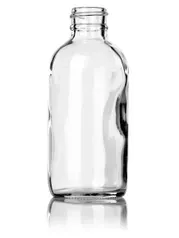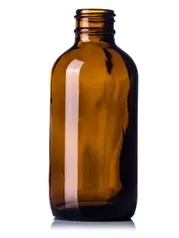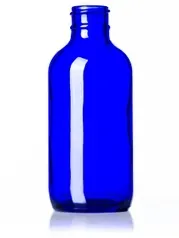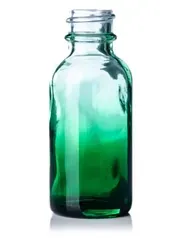 Home > News
Home > NewsColor is everywhere. Look around: there are hundreds of different shades of colors surrounding you right this minute. At Container and Packaging, we have lots of different colored glass containers. There are cobalt, amber, clear (flint), red, green, white, black¦ You get the idea. Lots of colors! How do all of these colored glass containers get their different pigments? That's what we are going to explore today.

Let's start with the basics. First off, flint glass means clear glass. Here's a little bit of glass history trivia for you. Clear glass used to be very difficult to make because it was tough to get the necessary pure materials. Then, in 1662, a glassmaker named George Ravenscroft started adding calcined flint (pure quartz rock) to his glass formula. This made a very clear and refractive glass that became easier to produce. As time progressed, glassmakers substituted lead for flint in their formulas, resulting in lead glass. Today, clear glass is usually made by decolorization, a method of adding pigments to slightly tinted glass to create a colorless product. But the historical name stuck. Clear glass became known as flint glass, even when calcined flint was no longer used. Even now, clear glass is often still called flint.

Amber is one of the most common hues for colored glass containers. Amber glass is made by mixing sulfur, iron, and carbon into the base glass formula. It became extensively manufactured in the 19th century, and is still extremely popular today. Amber glass is particularly useful when your product is light sensitive. The amber color absorbs harmful UV wavelengths, protecting your product from light damage. Because of this, amber colored glass is often used for beer, certain drugs, and essential oils.

Cobalt colored glass gets its name from the addition of cobalt oxide to the glass batch. This results in an intense blue glass that is attractive and unique. Cobalt has been used as a pigment for thousands of years. Cobalt oxide is an extremely potent colorant, so only a few parts per million are needed to make a batch of blue glass. Check out this cobalt blue jar to see an example.

At Container and Packaging, we have one solid green glass bottle. Green glass is usually made by adding chromium oxide into the glass formula. Other different chemicals can be added to make different shades of green glass.
Some of the colored glass containers at Container and Packaging are actually painted with a special exterior paint. We have frosted glass and white glass. There are also black-amber Boston round bottles. And some of our bottles are shaded, with the color changing from the top to bottom of the containers. They come in blue, purple, green, and red colors. These colored glass containers are not only gorgeous, but also unique.
Even though sulfur, iron, carbon, cobalt oxide, chromium oxide have been added to the glass to change it’s color, the glass still retains its inert, non-reactive properties. In the case of the painted glass, only the exterior has been painted, also allowing the glass to retain it’s non-reactive properties.
If you are interested in colored glass, then check out our selection on our website. It is a great way to see the different hues of containers we have at Container and Packaging. May your day be colorful and bright!